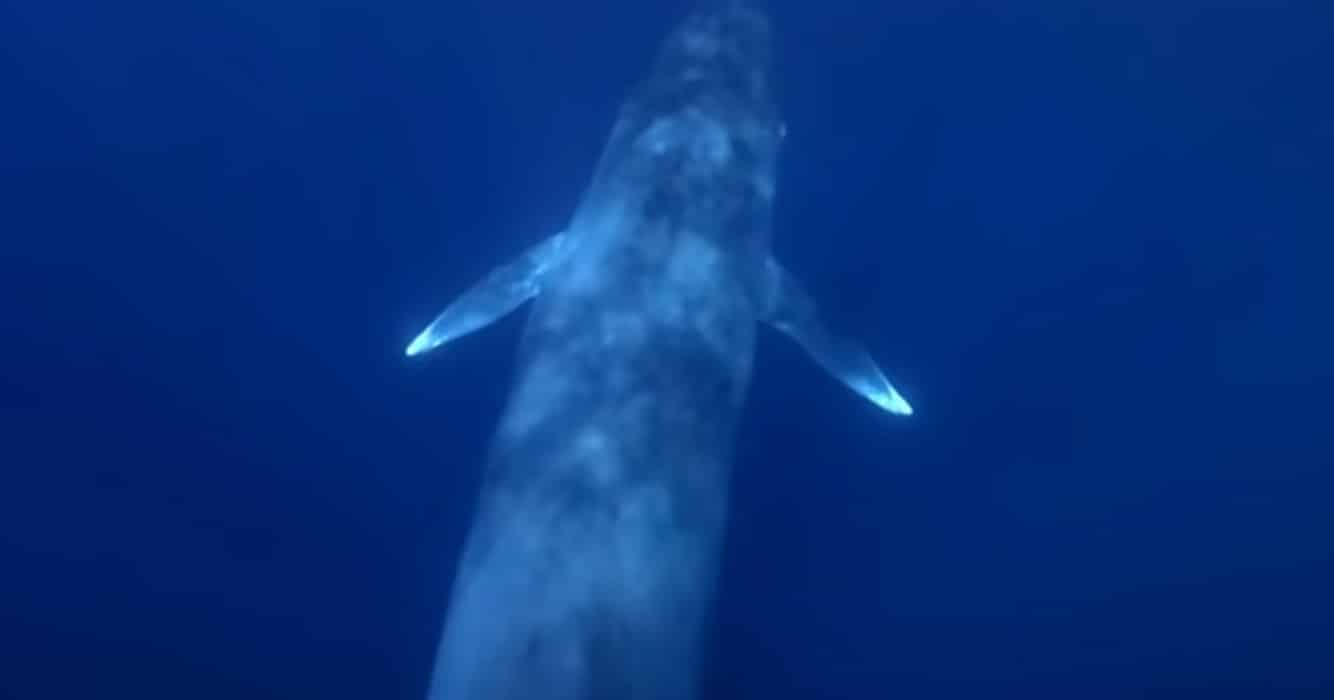The world’s largest animal, the blue whale, has made a triumphant comeback to these tropical waters after a nearly 200-year absence, setting the stage for a unique natural occurrence on the Philippine oceanic coast. The last sightings of these magnificent marine giants, who are renowned for their unmatched size and striking blue-grey hue, were in this area sometime in the early 1820s. Marine biologists, environmentalists, and the general public have all expressed great enthusiasm and interest over their reappearance.
A Huge Return

A number of whale species, notably the blue whale, were previously abundant in the waters surrounding the Philippine archipelago. However, ferocious whaling operations in the 19th and early 20th centuries caused a severe decline in whale populations in this area. In order to save these gentle giants from extinction, strict international laws and conservation initiatives were eventually developed. The reappearance of blue whales in the Philippines is not only evidence that conservation efforts have been successful, but it also offers hope for the recovery of marine biodiversity in the area. The reappearance of these enormous animals denotes a strengthening of the marine ecology and suggests the probable restoration of ecological equilibrium in Philippine waters.
Ecotourism Potential by the Blue Whales

In order to better understand the migration patterns, behavioral inclinations, and interactions of these leviathans with their environment, marine biologists and researchers are closely monitoring their return. The information acquired will help to improve conservation efforts to maintain the long-term survival of these marine mammals in the area and will also help us better understand the ecology of blue whales.
The nation’s ecotourism industry might benefit from this development. It is a once-in-a-lifetime opportunity to see the majestic blue whale in its native habitat, and the possibility of such encounters can draw a large number of wildlife photographers and nature enthusiasts to the Philippines. To avoid having an unfavorable effect on the whales or their habitat, it is essential that all ecotourism activities be carried out ethically.
A significant event that highlights the flexibility and resilience of nature is the return of blue whales to Philippine waters. In order to safeguard not only blue whales but also the wide variety of marine life that lives in our waters, it is crucial to sustain and strengthen conservation activities. For the long-term coexistence of people and marine life, it will be crucial to conduct ongoing study and employ sustainable techniques.
The fact that blue whales have returned to the waters around the Philippines is evidence of both nature’s tenacity and the benefits of conservation efforts. It creates new opportunities for scientific research, ecotourism, and environmental awareness while bringing to our attention the complex and precarious balance of life on Earth. The sight of these gentle giants effortlessly navigating the waters off the Philippine Islands inspires optimism and prompts us to consider our responsibility in maintaining the natural beauties of the planet for future generations.


